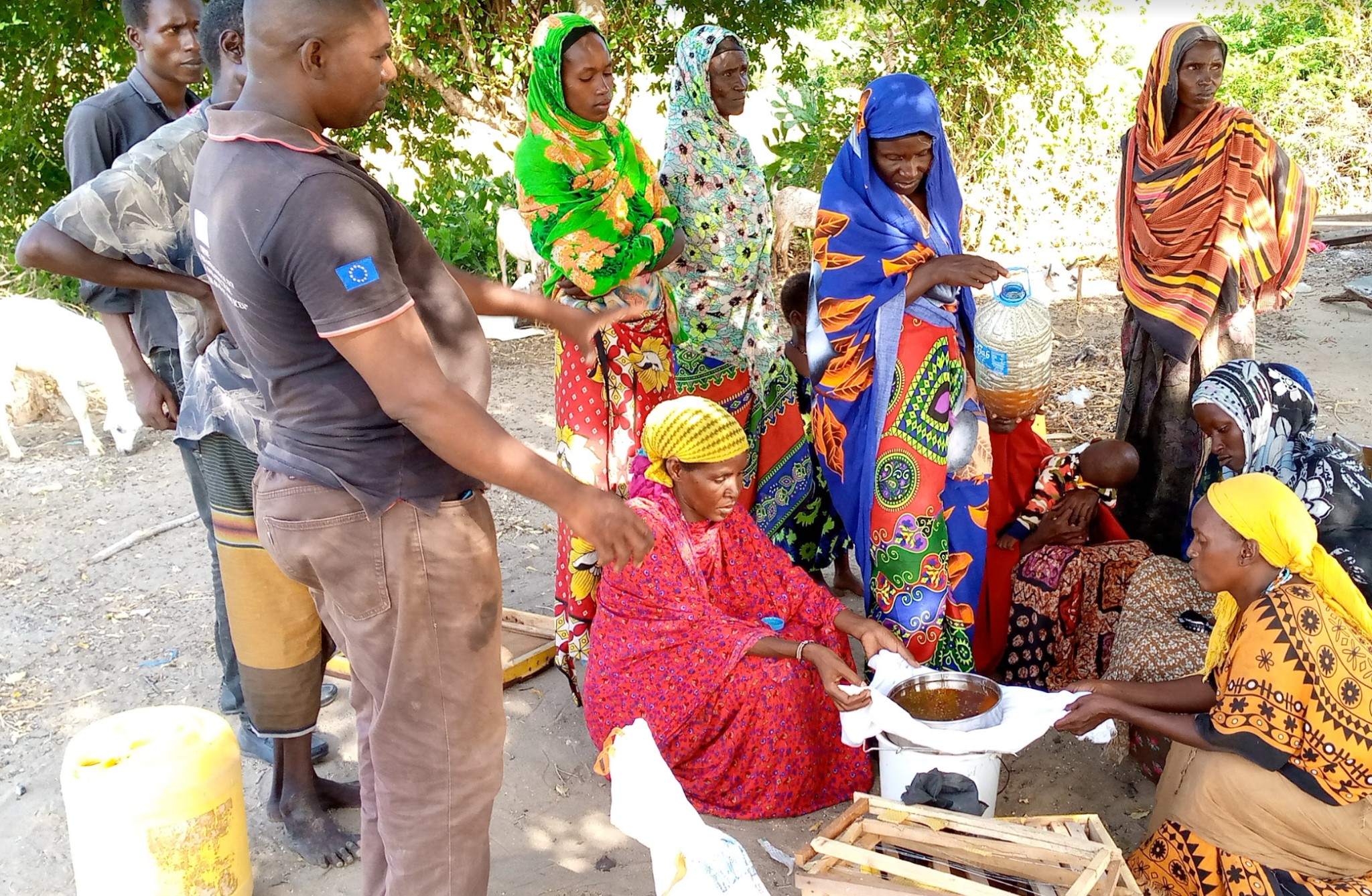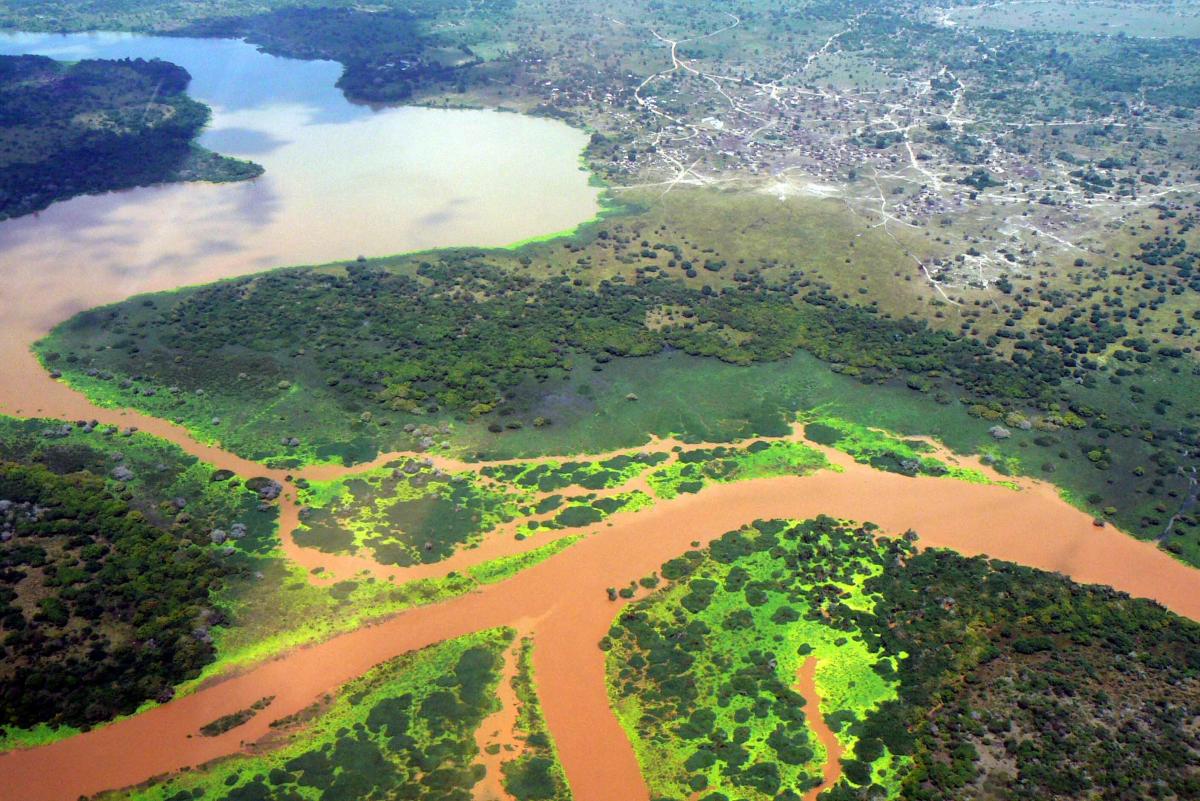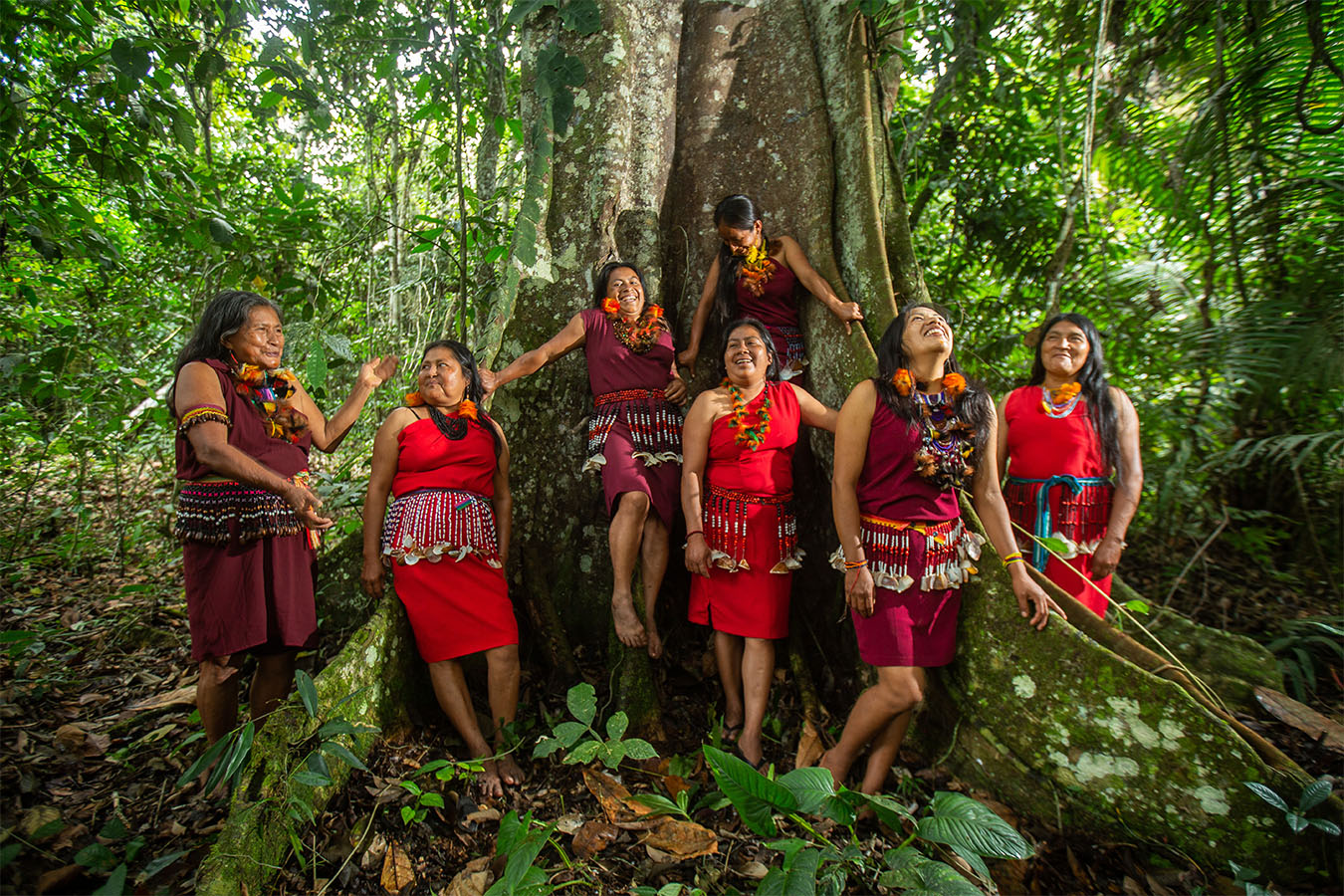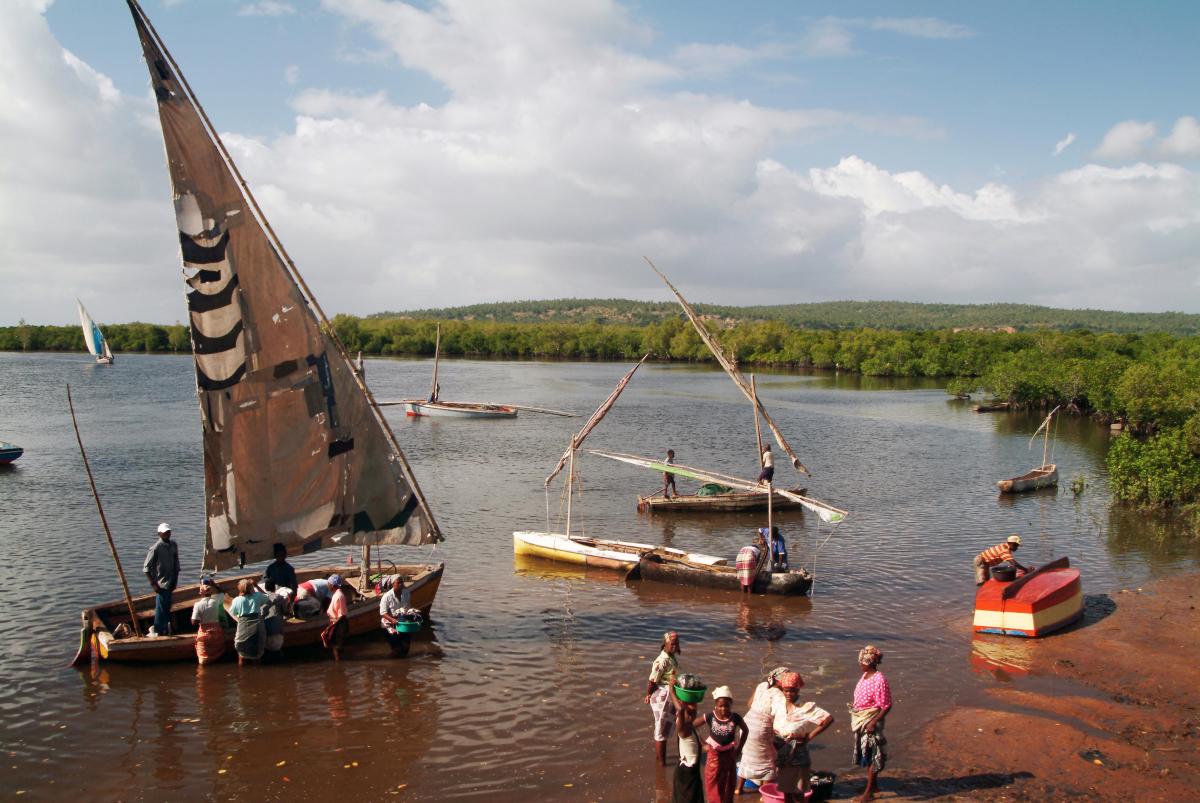Restoration businesses boost income and sustainable land management
Restoration-linked businesses contributing to improved household income and sustainable land management in the Tana River delta.
The TRI Kenya Tana project is working to help communities develop and enhance restoration-linked businesses and value addition through the Green Heart Initiative.
Pastoralism, crop farming, fishing and harvesting of natural resources are the main livelihood activities for many local communities in the Tana River delta of Kenya. However, the lack of established mechanisms for the sustainable use of natural resources, has led to over-exploitation, contributing to degradation and depletion. Most livelihood activities are climate sensitive. Over-reliance on these livelihood streams for survival further exposes local communities to the negative impacts of climate change.
The development and promotion of enterprise-based solutions – centred on the wise use of natural resources – offer a sustainable alternative. Such solutions serve multiple purposes of alleviating pressure on natural resources, enhancing household incomes and strengthening resilience to the negative impacts of climate change.
Since 2019, under the TRI Tana project, the Tana River delta’s local communities have been supported to venture into biodiversity- or restoration-based businesses, building on foundational work undertaken by Nature Kenya through previous projects. The need to promote biodiversity- or restoration-based enterprises is informed by a Strategic Environment Assessment (SEA). The SEA was jointly undertaken in 2014 by Nature Kenya and partners to inform the land-use planning process for the delta. The SEA recommended that “economic activities in Tana should include improved management of livestock within the delta and surrounding areas, and the promotion of community-based farming enterprises, supported by private partners, as well as development of freshwater fisheries to provide significant income as well as an important source of food and protein.”
The TRI Tana project is working to help communities develop and enhance restoration-linked businesses and value addition through the Green Heart Initiative. This initiative seeks to promote sustainable economic growth, protect the environment, create employment opportunities, improve local livelihoods and boost the regional and national economy. The Green Heart Initiative has two elements, including a Green Heartland (the entire Tana River delta, 130 000 ha) and an industrial estate.
Within the heart of the delta, the TRI Tana project, with co-financing from the EU-funded project “Community Resilience Building in Livelihood and Disaster Risk Management” (REBUILD), has strengthened community capacity to increase sustainable production of agricultural products and nature-based services based on green development principles. Communities have been supported to produce a range of products. The products include milk and beef from livestock, chilli, sunflower, simsim, vegetables, fruits and rice cultivated on private and cooperative farms, along with poultry, fish and honey. Products have been showcased at various events, such as Nature Kenya participating in the Annual Agricultural Show in Mkomani, Mombasa, where Tana delta-branded honey and rice was shared with exhibitors. Tourism is also promoted through the establishment of community wildlife conservancies.
The project has supported the establishment of 11 cooperatives with a combined membership of 2 595 individuals. Strengthening the capacity of the cooperatives has been the major focus. Key elements of capacity building included providing support on membership recruitment, restoration, advocacy, governance and integrated natural resources management. Training in November 2022, with technical support from Tana River County, trained 307 representatives from 11 cooperatives on further topics such as setting up and running sustainable businesses, resource mobilization, business plan development and entrepreneurship, and marketing and distribution. From emphasizing such training priorities, the cooperatives have been deliberately structured to support restoration.
 A group of women engaged in honey production.
Photo: UNEP
A group of women engaged in honey production.
Photo: UNEP
One of these cooperatives, the Tana Delta African Birds Eye Chilli Group, was supported to enter a contract farming agreement with Equator Kenya Limited, an agribusiness investor. Under the agreement, over 160 farmers engaged in chilli farming have expanded their access to quality seed, extension services and markets for their produce. Chilli crops provide several advantages: roots stabilize the soil, minimizing erosion and improving water infiltration, and are overall fast maturing, drought tolerant and less attractive to wild animals.
Throughout 2022, tree seedlings were prioritized as a livelihood improvement mechanism for farmers. The ultimate aim of this activity was to increase the acreage under agroforestry trees and help farmers increase their planting of high-value, fast-maturing fruit trees that also contribute to restoration.
An industrial estate is under establishment as part of the Green Heart Project. Produce harvested from farms will be transported to the industrial estate for processing and packaging, ready for marketing by private companies, including local entrepreneurs. Public finance will help put up supporting infrastructure, including roads, electricity and water. In August 2021, the Tana River County Government donated a 60 ha piece of land in Minjila for the purpose of establishing an industrial estate. The land has been surveyed and a development plan developed and signed by the Tana River County Government. Erecting of beacons, which are physical marks defining the boundary of the land parcel, is ongoing. Mainstreaming of the Green Heart Initiative into the Tana River County Integrated Development Plan is underway. This will enhance the allocation of public finances to develop the requisite infrastructure to service the industrial estate. In addition, a series of investor conferences have been planned.
Between September 2021 and February 2022, four investors with interests in the Tana River delta were identified. Among these is Equator Kenya Ltd that is currently working with local farmers in Tana on chilli production under contract farming. From February 2022, the TRI Tana project is facilitating a consultative process to develop investor vetting guidelines aimed at ensuring adherence to green development principles, where nature values are observed and promoted. A total of 30 investors were reached later on in 2022 during the TRI Tana project-supported fourth JABEIC.
Unsustainable use of natural resources within different production systems contributes, to a large extent, to land degradation and biodiversity loss. Mainstreaming restoration and sustainable use approaches in production systems and empowering local resource users to engage in nature-based enterprises based on green development principles, contributes to the recovery of ecosystems. In turn, enhanced access to ecosystem services strengthens the resilience of communities against negative impacts of climate change.
The expected outcome is that investors will promote business and livelihood approaches that promote SLM, reduce land degradation, maintain or increase biodiversity and mitigate against climate change.
This story is from TRI Year in Review 2022



